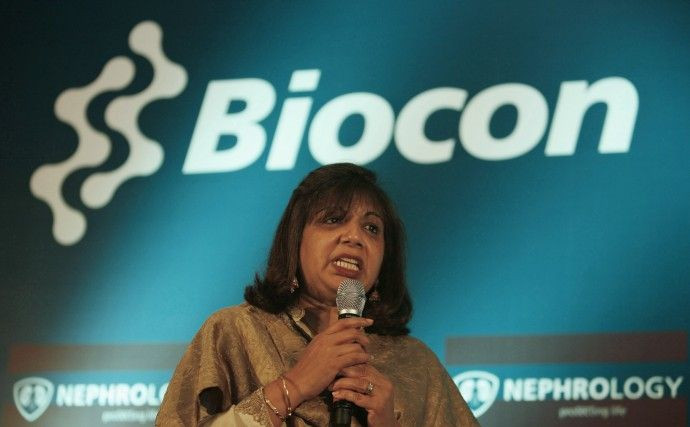Espirito Santo Downgrades Biocon, Questions Its Accounting Practices

Portuguese investment bank Espirito Santo has downgraded Indian bio-technology major Biocon from neutral to sell based on several issues, including accounting practices which the bank says are objectionable.
Espirito Santo has halved its target price for Biocon shares from Rs 350 to Rs 186 per share.
The Lisbon-based financial group raised questions relating to the company's accounting practices in a report released to the investment community Monday, according to Business Standard.
The investment bank's queries relate to the biotech company's cancellation of a $350-billion insulin deal with Pfizer and its divestment in AxiCorp.
The much hyped deal with Pfizer was struck in 2010 and was called off in March last, citing contradicting business interests since Pfizer preferred to continue with its own research on diabetic drugs. Scrapping of the deal was considered a major blow to the expansion plans of India's largest bio-pharma company.
Espirito Santo raised doubts about the aggressive accounting policy employed by Biocon. The bio-pharma company had received $200-million upfront milestone payments from Pfizer when the deal was called off. However, instead of showing the amount as a one-time gain in its profit and loss account (P&L), Biocon showed it as deferred revenue in its balance sheet to offset the R&D costs. The investment bank's analysts said that it was not a general accounting practice and that it would lead to inflating the company's earnings for the next three or four years.
In our experience, globally, post a deal termination, the balance of deferred revenues lying on the balance sheet is typically recognized in year-1 as a one-off revenue item. This is in line with the matching principle as the revenues from a terminated deal should not ideally be matched against costs of another deal (internal or external), the investment bank said in its report, Business Standard reported.
Similarly, according to the bank's analysts, Biocon posted a cash loss of euro 10 million and a notional loss of euro 21 million in the AxiCorp deal. But the company structured the loss in such a way that its P&L account reflected no loss in the deal.
However, Biocon has refuted both the charges and said that its accounting practices are in line with the universal practices.
The amount so received as 'one off earnings' cannot be taken to revenues since the company has obligations under the insulin R&D program. It is incorrect to interpret that the company will not have any R&D costs in future, since the offset is only for programs which were a part of the contract with Pfizer and not for others. Biocon will continue to have R&D expenses going forward, a Biocon spokesperson told moneycontrol.com.
Regarding the AxiCorp deal, the spokesperson claimed that though the company had gained no benefit from the divestment, there was no loss from the deal.
Please note that Axicorp transaction had a mix of IP and cash (infusion in Axicorp and buyout from promoters) in 2008. At the time of exit, the IP reverted to Biocon and there was a settlement in cash. Though we cannot reveal the exact details, the impact of the transaction in the P&L was neutral, moneycontrol.com quoted the spokesperson as saying.
Biocon shares were trading down 0.7% at Rs 214.25 on BSE at 2.00 pm IST Tuesday.
© Copyright IBTimes 2025. All rights reserved.






















